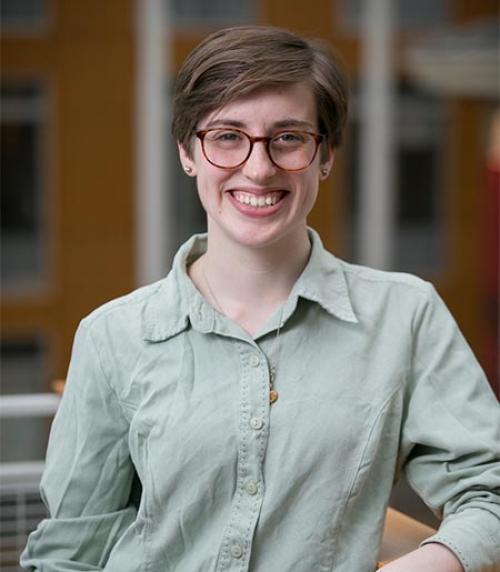Rachel Whalen
English
Buffalo, NY
What are the most valuable skills you gained from your Arts & Sciences education?
My humanities education has given me the remarkable gift of being able to think critically. Now more than ever, I find it crucial to challenge and break and rebuild things; I find myself needing to fragment and stutter and suture myself. The humanities--and for me, literature and poetry in particular--not only permits this dissolving and reconfiguring, but it actively encourages innovation, criticism, failure, and reconstruction. It encourages a new kind of thinking, and in my own work and reading I have been moving towards interdependent means of learning, knowing, and being.
A professor recently shared with me an article in the Chronicle of Higher Education by former Cornell undergraduate dean David N. Devries, who says that an education must equip us “To be alone with one’s mind in the long stretch of life meeting the untold number of moments when one’s fundamental aloneness will confront one.” Devries poses this as a necessary revelation in the face of career-driven, corporatizing universities. Through my study of literature and poetry at Cornell, I have learned how to be alone, and how to be whole in that aloneness.
What is your main extracurricular activity--why is it important to you?
Marginalia: Cornell’s Undergraduate Poetry Review fundamentally formed my Cornell experience. I was lucky enough to be around for the magazine’s conception, and I have been privileged to witness it grow into a wider community. It was my first place of belonging, and it has developed into a supportive organization far beyond the scope of the printed page. I am so thankful for the generations of Marginalia families, and so proud of all we have built together.
I am also very involved in Cornell’s Public Service Scholars, through which I have had the privilege of working with the Poetic Justice club at the George Junior Republic High School. Poetic Justice was founded by the high school students. They are remarkably talented individuals, and I have been so fortunate to watch them grow as artists and as young adults.
How have you changed since you first arrived at Cornell? What have you discovered about yourself?
I have grown significantly since I arrived at Cornell. Perhaps most importantly, I have learned to create my own definition of success which includes failure and interdependence. I think that I thrive in environments that encourage interrogations and failures, that allow me to ask endless questions without necessarily arriving at any concrete answers. I do best when I am experimenting, when I don’t quite know the outcome. I also love creating transformative and creative spaces with others. This sort of work has led to many self-discoveries, and I anticipate that it will continue to do so for the rest of my life.




